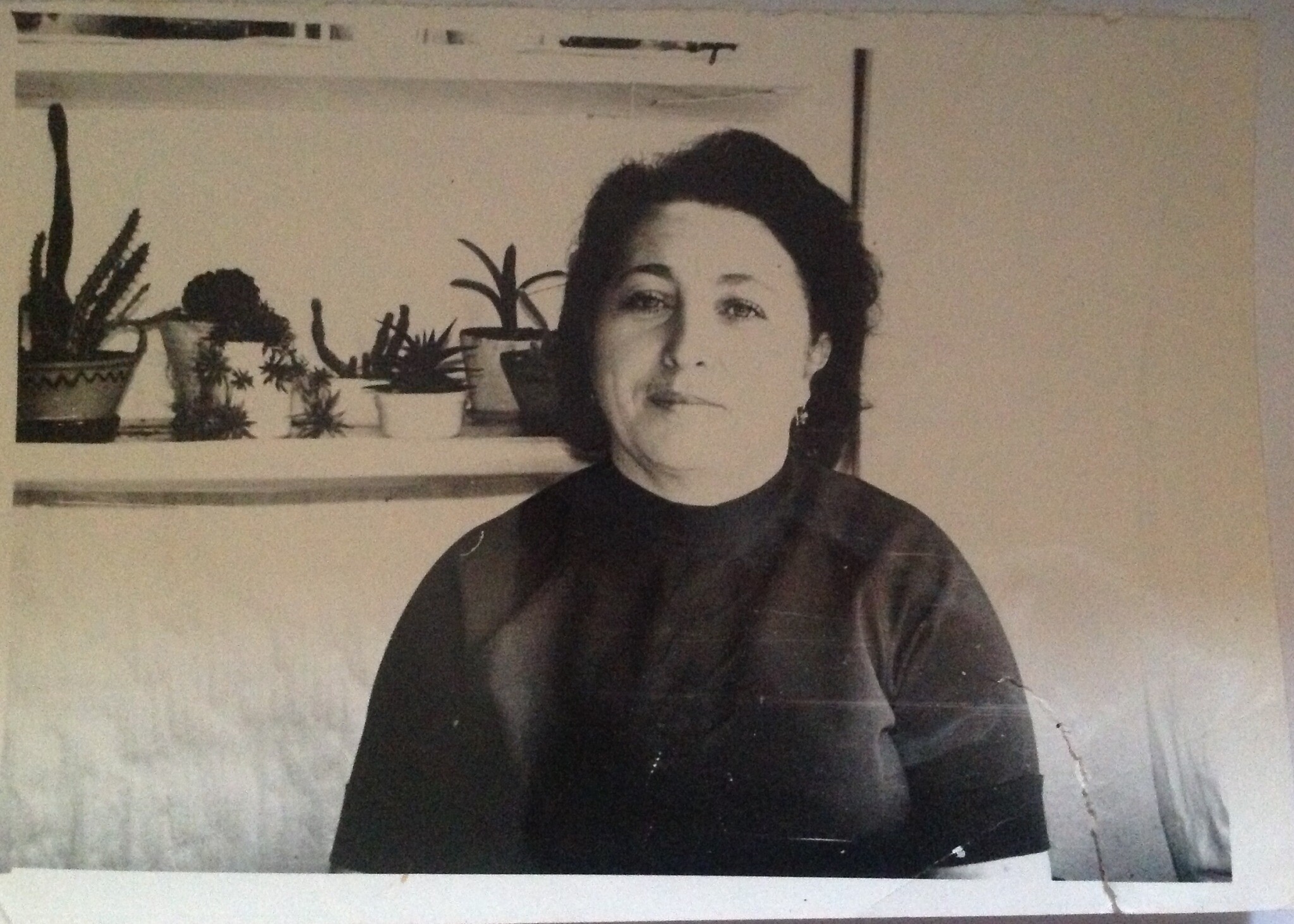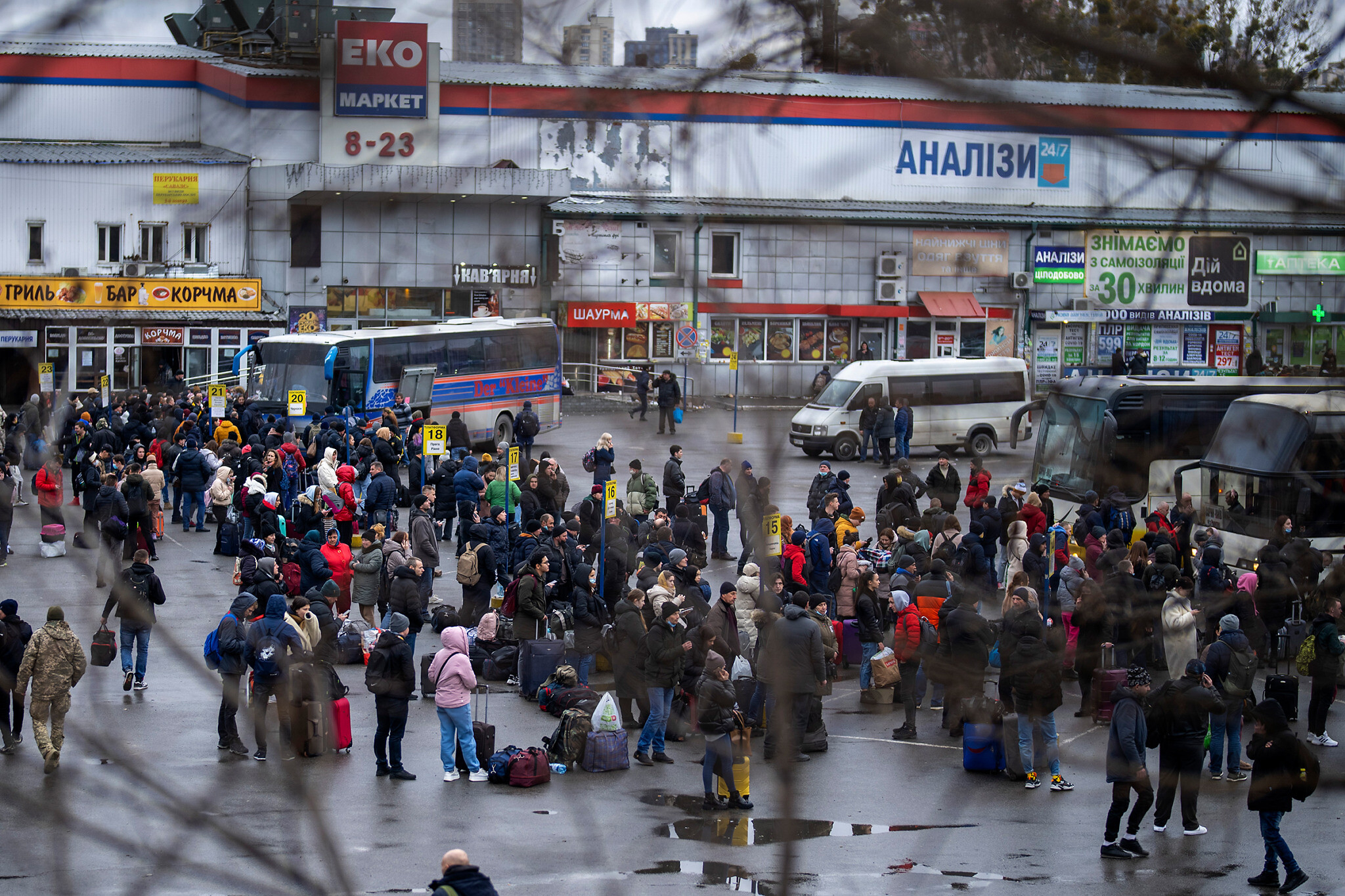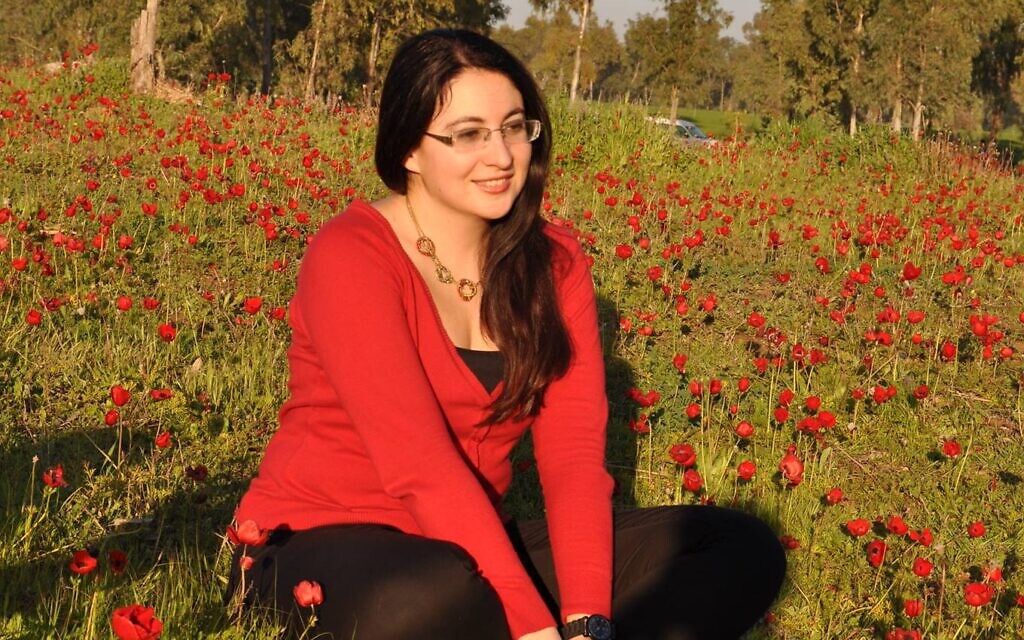“We took our Shabbat candlesticks in our suitcases”
Victoria was born in Ukraine and lived there until Putin invaded her homeland. This is the story of her departure, but it is not the first time her family have been forced to leave the country they love
I keep thinking about the menorah. It sits on a table beside family photographs and other precious keepsakes in our house in Kyiv. It is still there, but we are not. We could not take it with us when we fled because it wouldn’t fit in our suitcases. Suitcases we had to carry that were filled with our belongings that seemed so ordinary and everyday when they were in our home, but now in a new home they are symbolic of the life we left behind. And it makes me cry. Yet to cry over things seems so selfish when members of our family are still in Ukraine. Friends too who are still there who we may never see again. That is a reason to cry.
I left Ukraine with my mother Alla and father Oleksil. We talked about leaving together. For hours. To walk away from everything we know and love was not an easy choice to make. Kyiv was where I’ve lived all my life. It was where I did my job as a development director and board member of an NGO which focuses on supporting community-led energy efficiency. It was on track with developments in green initiatives, educational programmes and promoting sustainability. This is what I did for eight years in the country that was moving forward. Ukraine was a country with great potential. It had success in technology, agro innovations, digitalisation, energy efficiency and solutions in the development of industries and culture.
I have left all that behind. We also left our vibrant Jewish life. I was involved with numerous organisations – both religious and secular – as a community lay leader, founder and board member. Hundreds of projects and plans for Jews in all walks of life. I had initiated so many projects and had plans for so many others.
Get The Jewish News Daily Edition by email and never miss our top stories Free Sign Up
My family’s story is deeply connected to the Ukraine and it is one of happiness and tragedy. Some of our family were fortunate to escape during World War II and others just disappeared. Some were in the army and others were victims of the Nazi massacre at Babi Yar.

My first thought during those first minutes of the war that now ravages my country, were of my grandmother, Iva. I asked myself what she would have done in this situation as she knew Jews who escaped the Nazis and survived. She also knew others who did not.
As my mum was preparing to leave our home, she reminded me that this was not the first time. Our family were forced to evacuate in 1986 when the Chernobyl catastrophe happened.
For her this was a replay of boarding full trains with children pushed into wagons. I was just three at the time and we left with my granny Iva (my mum’s mum) and my great-grandmother Peisya Beila, who had dementia. This was their second evacuation. The first had been during WWII when my granny made a last-minute escape on a train which took her to the middle of Asia.
In ’86 we went to Moscow, where our relatives gave us a one-bedroom apartment for seven months, with my parents spending a month at a time with us. They each tried to visit at weekends, but it was very difficult for my Granny to look after a child of three and an 80-year-old mother with dementia in a new city. For my mother the only difference between then and now is the invaders bombing and shooting at people trying to reach the trains and buses.

In these past weeks when I saw Kyiv metro turned into a shelter, I recalled pictures I’d seen of the London underground when it provided shelter during WWII. I was scared and my grandmother’s story comes into my head all the time. When she finally returned to Ukraine it meant everything. My parents were afforded a good life and given the opportunity to study and then work in very important fields in Kyiv – my father in the energy sector and in construction. I’d say he was involved in building half the city. Now we look at the destruction and feel unbearable sadness.
Once we decided to leave, we didn’t know where to go initially or if we could go there. But we went to Budapest, a city I had been to before and where I have friends through my involvement with Jewish organisations. To suddenly be living beside those friends in their country as a refugee is something I could never have imagined.

When we arrived in Budapest the welcome we received from the Jewish community was moving. They reassured us we were wanted and there have been so many invites to Shabbat meals. We celebrated Purim and Pesach with them as well. You take your faith with you wherever you go and it has been a spiritual touchstone for us in Budapest. Of course there are always the images of our Ukrainian ancestors in our heads, for just as they moved during the Holocaust, that is now our fate.
It may not be orchestrated in the way the Germans moved our people and killed them, but seeing fleeing Ukrainian families being shot by Russians does not feel so different when watching it on the news. My parents are devastated by what they see. To see them so hurt and worried is hard to bear and providing the strength they need isn’t easy.
I feel so responsible for them. Responsible for us all. I am in constant communication with our local community at home and still helping those who have chosen to stay there and those who have evacuated. About 80% of the Jews of Ukraine are still there, some of them have been displaced internally and some are staying in their homes and need constant help.
We hope that we can go back, but of course no one knows how long it will take now and what will happen. We are hoping for the best, but we also have to prepare ourselves for the worst, which is very hard to admit. We know we have to plan and need to integrate in our new place and to find a new meaning of life.
Everything that you loved / did not love, what you valued / did not value, what you dreamed / did not dream, with whom you spoke / did not speak – everything now is in the past. Everything is gone. No matter how painful, no matter how sad. When the shock of silence and finding safety passes, when the adrenaline from new places subsides, the understanding might come. Life will never be the same again, even if we go back. It won’t be like before. The puzzle won’t fit. We won’t be the same. All of us already are not the same. Never. A huge tragedy has occurred composed of millions of tragedies of destroyed small destinies. Only memory remains. The memory of friends, a once peaceful life, the memory of home, of native places. But we have been left with the most valuable thing – life!
We took our Shabbat candles in our suitcases. Bags that were too heavy for my now-retired parents to carry. But they did. We all did. When we light the candles in Budapest, we remember those Friday nights in Kyiv that we took for granted. I hope that the menorah will still be on the table when we get home. If we get home. And if it’s still home.

Thank you for helping to make Jewish News the leading source of news and opinion for the UK Jewish community. Today we're asking for your invaluable help to continue putting our community first in everything we do.
For as little as £5 a month you can help sustain the vital work we do in celebrating and standing up for Jewish life in Britain.
Jewish News holds our community together and keeps us connected. Like a synagogue, it’s where people turn to feel part of something bigger. It also proudly shows the rest of Britain the vibrancy and rich culture of modern Jewish life.
You can make a quick and easy one-off or monthly contribution of £5, £10, £20 or any other sum you’re comfortable with.
100% of your donation will help us continue celebrating our community, in all its dynamic diversity...
Engaging
Being a community platform means so much more than producing a newspaper and website. One of our proudest roles is media partnering with our invaluable charities to amplify the outstanding work they do to help us all.
Celebrating
There’s no shortage of oys in the world but Jewish News takes every opportunity to celebrate the joys too, through projects like Night of Heroes, 40 Under 40 and other compelling countdowns that make the community kvell with pride.
Pioneering
In the first collaboration between media outlets from different faiths, Jewish News worked with British Muslim TV and Church Times to produce a list of young activists leading the way on interfaith understanding.
Campaigning
Royal Mail issued a stamp honouring Holocaust hero Sir Nicholas Winton after a Jewish News campaign attracted more than 100,000 backers. Jewish Newsalso produces special editions of the paper highlighting pressing issues including mental health and Holocaust remembrance.
Easy access
In an age when news is readily accessible, Jewish News provides high-quality content free online and offline, removing any financial barriers to connecting people.
Voice of our community to wider society
The Jewish News team regularly appears on TV, radio and on the pages of the national press to comment on stories about the Jewish community. Easy access to the paper on the streets of London also means Jewish News provides an invaluable window into the community for the country at large.
We hope you agree all this is worth preserving.
-
By Brigit Grant
-
By Laurent Vaughan - Senior Associate (Bishop & Sewell Solicitors)
-
By Laurent Vaughan - Senior Associate (Bishop & Sewell Solicitors)
-
By Laurent Vaughan - Senior Associate (Bishop & Sewell Solicitors)
-
By Laurent Vaughan - Senior Associate (Bishop & Sewell Solicitors)






















